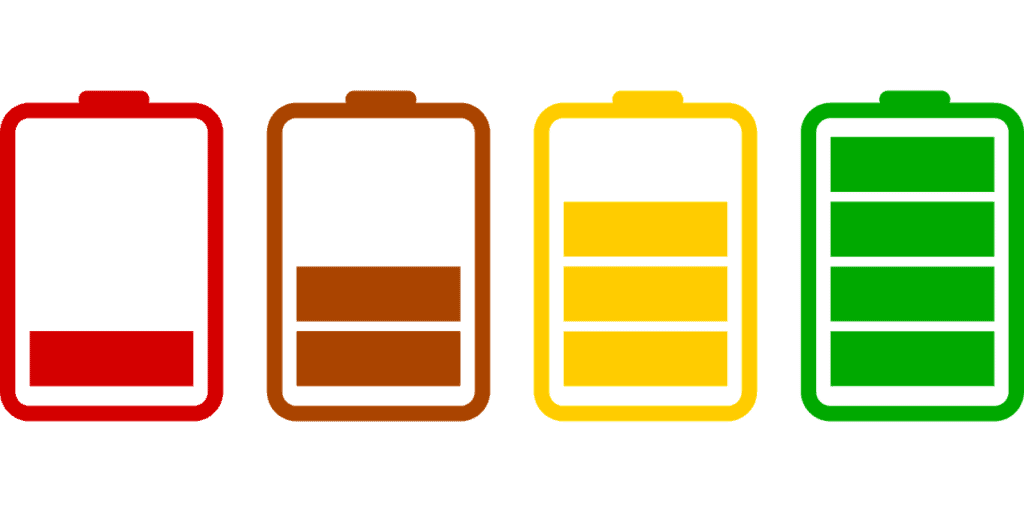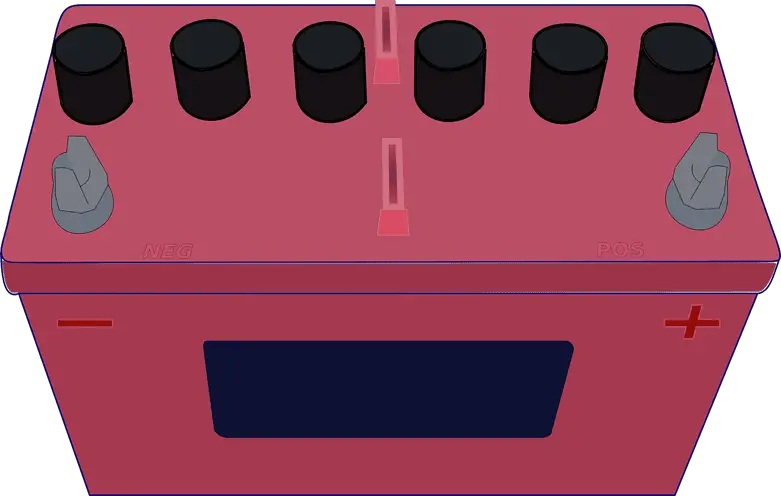
Lead-acid versus lithium batteries… What’s the difference and who even cares?
The use of batteries as alternative energy options has continued to grow significantly over the years…
There are several types that you can choose from. The two most common types are Lithium-ion and lead-acid batteries.
While lead-acid batteries are relatively inexpensive options, they attract lots of maintenance costs to function adequately, and their life span is short.
Lithium-ion batteries, on the other hand, tend to cost more but have a longer life span. This article will make a comparison between the two types of cells and their main features.
The Old-School Lead-Acid Battery
Lead-Acid batteries have been in existence for more than 100 years. They were invented by a French physicist and are currently widely used for rechargeable batteries. They’re made using lead alloy.
Although they have incredibly low energy to weight ratio as well as low energy to volume ratio, they have the power to offer high surge current.
This translates to high power to weight ratio. These features and the fact that they are inexpensive makes them ideal to be used in many battery power applications.

They are most used in motorcycles, Jet Skis, cars, and electric scooters.
Some of the types of lead-acid batteries include Sealed Lead-acid batteries, flooded lead-acid batteries, and AGM Sealed Lead Acid Battery.
Overview of Lithium Batteries
Lithium batteries showcase premium battery technology. They are made using lithium metal.
They feature high charge density as well as a high cost per unit. All lithium ions utilize deep-cycle technology.
This means that they can be fully charged or discharged. They produce around 1.5V-3.7 V based on the material used to make them.
Mostly used in electronic devices, they are very expensive but have a long life span. An excellent example of these batteries is lithium iron phosphate batteries.
Understanding these two batteries will help you make a more informed decision when you plan to buy one.
The pros and cons will also help you achieve this. Here’s a summary of the main differences between lead-acid batteries and lithium batteries:

Cost – Lead-Acid vs Lithium Batteries
A significant aspect where lead-acid batteries overthrow their lithium counterparts is cost.
Lead-acid batteries are incredibly cheap. Generally speaking, when buying lead batteries, you can expect a lead-acid battery to cost hundreds or even thousands of dollars less than a similarly sized lithium battery would cost.
The cost of lithium batteries is about 2-3 times higher than that of lead-acid batteries. However, the cost of owning and operating lithium batteries is way cheaper in the long run when you consider factors such as performance and longevity.
Life Cycle Comparison
Lead-acid batteries typically withstand fewer discharge cycles as compared to lithium batteries.
Usually, the life cycle tends to be different depending on the manufacturer, but on average, lead-acid batteries have a life cycle of fewer than 1000 cycles (mostly about 400-500 cycles).
On the other hand, the typical life cycle of lithium batteries averages between 3000 and 5000 lifecycles.
Lead-acid batteries are usually affected by a chemical reaction known as sulphation. Sulphation makes lead-acid batteries decrease their charge holding capacity.
Lithium-ion batteries, however, do not experience the same problem, thus making them a popular choice for commercial solar power systems.

Battery Efficiency
Battery efficiency is another crucial factor to look at when comparing various options.
Battery efficiency can also be referred to as round trip efficiency. It’s the charging and discharging efficiency as well as losses when the battery is being used. Typically speaking, lead-acid batteries have a higher loss of about 15% and 20%.
You will find that lead-acid systems take a longer time to charge, ideally 2-3 hours. This means that during bad weather, the charge efficiency becomes very low, and it may not be possible to achieve a full charge.
Lithium batteries charge very quickly, basically around 1-2 hours and absorb energy at incredibly fast speeds.
The lead-acid battery efficiency ranges between 80% – 85%. On the other hand, the efficiency of Lithium batteries is 95% or more. This means that lithium batteries offer a much higher battery capacity.
Similar: Top 3 Solar Panel Battery Banks + Ideal Features to Look For
Capacity
Battery capacity refers to the amount of energy that the battery can store and finally discharge. Battery capacity may differ as per the manufacturer. Lithium batteries feature a higher battery capacity compared to lead-acid batteries.
Given a similar space, a lithium battery will store more energy. This translates to more energy discharge, and you can power a lot of appliances for a more extended period.
Space and Weight
When you consider space; lead-acid batteries tend to take up more space in a room because they are extremely heavy.
They also require lots of space for adequate ventilation and airflow so that gases can escape when they are discharging and keep them cool when temperatures are high.
Lithium batteries have reduced weight and greater energy density and use less space. Their total weight is about 1/3 of that of lead-acid batteries. They do not release any gases when they are discharging that do not require lots of space for ventilation.
They also weigh less, making them convenient for transportation. Lithium batteries do not overheat since they have specialized systems that monitor weight.

Pros of lithium-ion batteries
- Higher energy density – A higher density translates to higher power capacity, without having to be very heavy.
- Lower Self-discharge – They tend to hold a charge longer compared to other battery types.
- Low Maintenance – They require minimal or no maintenance at all. Make sure that the cells located within the battery bank are entirely charged.
- Lightweight – Their weight is small, making it easier to transport.
- Safer for the environment – They utilize much cleaner technology that’s generally safer for the environment.
- Longer life span – They can be used for a long time
Cons of Lithium-ion batteries
- Expensive – They are very expensive. They cost up to 3 times more than lead-acid batteries.
- Transportation problems – They have transport restriction problems, especially when in more substantial distances by air.
- Requires circuit protection – If not fitted with circuit protection, they may explode when the charge voltage and current are too high. Circuit protection causes additional costs.
- Charger specific – A wide array of lithium batteries are charger specific consequently using a standard charger may damage them.
Similar: Are Solar Generators Worth the Money? How To Decide
Pros of lead-acid batteries
- They are relatively inexpensive.
- Low maintenance requirements–they have no memory or electrolytes to fill.
Cons of lead-acid batteries
- Low energy density.
- Environmentally unfriendly.
- Very Heavy – Lead-acid batteries are very heavy which dramatically limits their transportation.
- Thermal running may occur due to improper charging.
- Have a limited lifespan.
- Transportation restrictions- Numerous transportation concerns arised due to dangers associated with lead-acid spillage.

Conclusion
It’s quite evident lead-acid batteries have an added advantage when it comes to upfront costs.
Lithium batteries, on the other side, offer superior performance thanks to their higher energy densities as well as higher efficiencies and longer battery life.
Though lithium batteries have higher upfront costs, they prove to be a more valuable option. Lead-acid batteries are good options for power back up systems. Lithium batteries are generally easier to install compared to lead-acid batteries.
